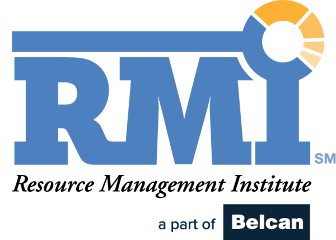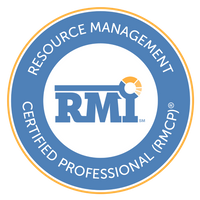In Michael Farmer’s new book Madison Avenue Makeover, which chronicles the transformation of Huge from a digital agency into a product-centric growth acceleration company, Mimi Moore describes her role in organizing the business’s first cross-office resource allocation system like this:
“I entered an office-based system where some of the leaders did not even know one another, and they did not normally talk to one another. So I had to be a human solution to this problem – flying around the country, visiting Huge offices, getting to know the people, building relationships, those kinds of things. I was the exception to our siloed structure. It was hard. I would provide a senior visual designer from Atlanta for a Brooklyn-based need, for example, and later hear from Brooklyn that the designer did not meet their unique requirements. This was hard on the employees who had this experience.”
The notion of the burgeoning Resource Management Office (RMO) as a human solution to an organizational problem, establishing a centralized mission in a decentralized business, will likely resonate for many resource management leaders.
The story of Huge’s transformation brings trends highlighted in new research from the Resource Management Institute (RMI) into full color and can help professional services businesses better understand the possibilities of an RMO.
The RMO’s Place In Your Business
Kantata recently partnered with RMI to create a new RMO survey detailing the latest changes and challenges in the world of professional services resource management. Among these findings, 70% of surveyed businesses said they currently have an RMO, illustrating the rising usage of resource management across the industry. In addition, more than half of these companies have a staff of 6 or more within their RMO.
In the modern professional services world, the RMO presents a tantalizing opportunity to take resource management from allocating resources in siloed tools or spreadsheets and monitoring utilization to a full-blown company-altering strategy that’s on the same level of importance as project management. However, a successful RMO strategy is not just about the tactical aspects.
According to RMI research, the primary responsibilities of most RMOs include resource management process development and governance, resource management reporting and analytics, and project allocations. But to fully leverage what an RMO can be, companies need to rethink the tools an RMO uses and the charter that guides it.
Resource management as a profession and as a function is still young. As such, companies are still figuring out how this fits best within their organization and how they can change as a company to operate at a higher level.
Often, businesses begin to carve out a place for resource management as its own function without being aware of best practices. Not just what the best practices are, but that there even are best practices. It’s important to know they don’t need to invent the framework.
Making The Most Of Your RMO
Some professional services businesses may think that having a dedicated RMO is only necessary for managing a large, multi-location spanning organization. But data shows that it’s never too early to commit to a centralized RMO. Even the smallest organizations are carving out the space for them and are seeing the benefits, both today and as they grow. And with a high performance RMO in place, a business can be ready to scale and change, no matter what comes their way.
However, not every business needs to immediately create a massive resource management department. Committing to resource management does not always necessitate a huge RMO. It can start by committing a percentage of someone’s job to focus on resource management.
Regardless of how big or small your RMO is at the outset, it’s important to consider how you empower your dedicated employees to perform their resource management duties from the start.
The Barriers to Resource Management Empowerment
What aspects of your business stand in the way of true resource management empowerment?
- Lack of Clear Charter or Strategy: Without a well-defined approach to resource management, your RMO-designated employees will not be able to utilize resources to the best of their abilities. In worst-case scenarios, resource managers will accidentally work at cross purposes with the rest of the organization, especially project managers, due to a lack of strategy.
- No “Seat at the Table”: Resource managers need to be able to advocate for themselves and have a voice alongside the rest of the organization. Without a seat at the table with other managers that help shape the direction of the company, they will be subject to the demands of the rest of the company and become ineffective in their position.
- The Wrong Tools: Even the best resource managers need the right software to do their jobs each day. And as companies grow, the number of resources expand, and daily duties become more complicated, these tools will only become more important. areTechnology is essential in facilitating the everyday management processes that make resource management successful. The right tools can also save valuable time,and keeping time-consuming daily tasks from consuming managers’ crucial work hours.
The Right Approach?
There are many software solutions that resource managers can use to complete some of their tasks. But tools that lack a holistic approach to resource management can force resource managers to retreat to spreadsheets to get their work done. This threatens the efficiency and accuracy of their work. Be sure to empower your RMO with a solution like Kantata that is purpose-built to support resource management functions and enable resource managers to do their job better and faster.
Professional services firms may see the creation of an RMO as a tedious effort, but ultimately the rallying cry is that the effort matters. A passive or unstrategic approach to resource management has the potential to truly hinder the growth and scalability of an organization and its ability to satisfy its customers. Overcoming these challenges and creating an efficient RMO can transform a company for the better.





